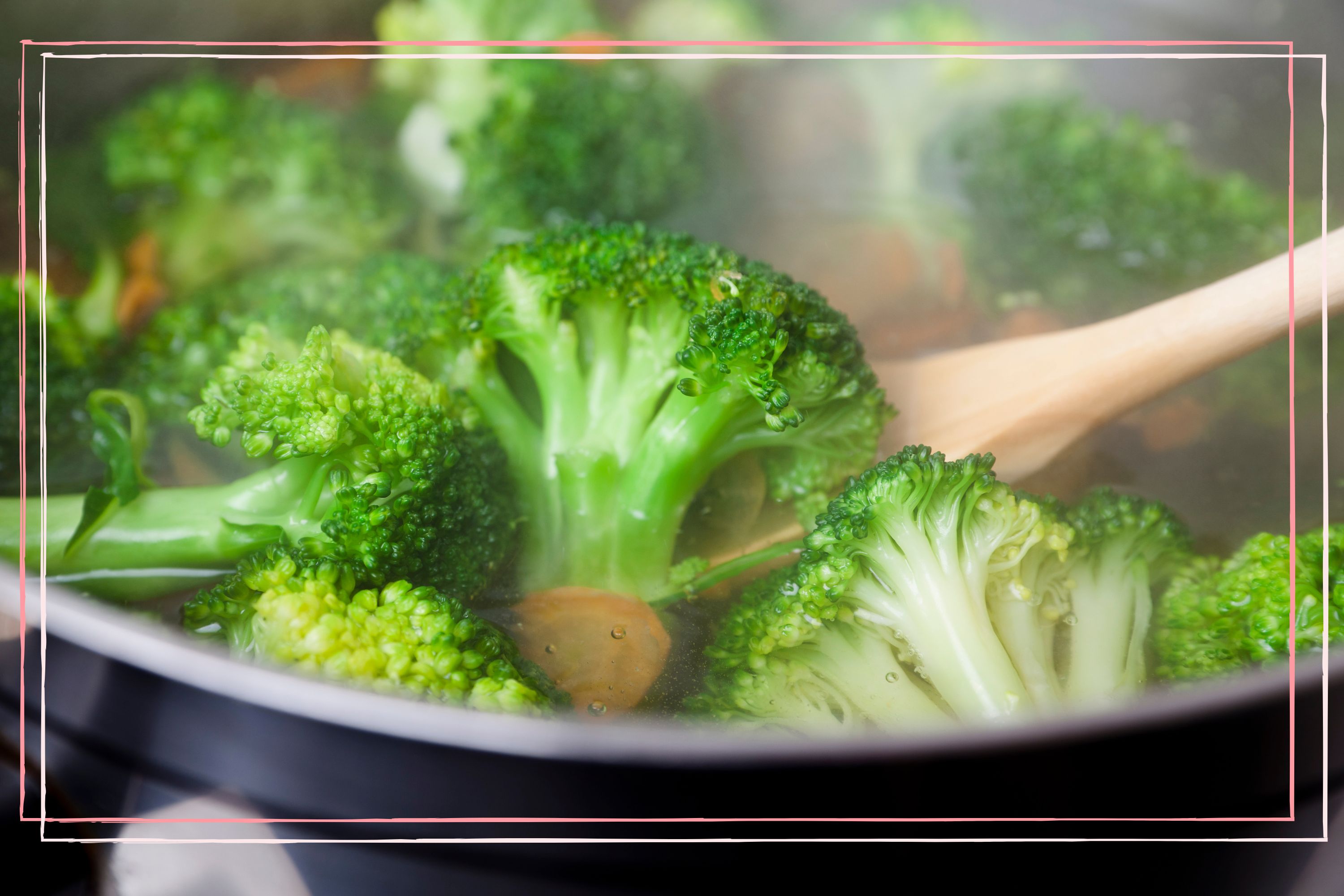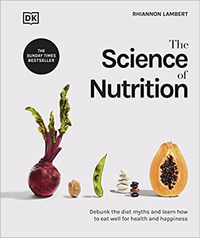Raw vs cooked food – which is healthier? Here’s what the experts say
Raw, steamed, boiled or stewed? We find out how to eat food to gain maximum nutritional value and optimal gut health


The raw food movement is based on the belief that there are more nutrients and digestive enzymes in raw food compared to the same food when it is cooked. But while humans would have once eaten all foods raw, this doesn't mean that it's healthier.
Ultimately, as with asking ‘are frozen foods healthy’, there is no straight answer to the raw vs cooked food question, but a little nutritional know-how can inform and improve how you consume food on a daily basis, leading to maximum nutritional intake from your ingredients.
Registered Nutritional Therapist Tracy Breuning says: “There isn't a sufficient body of evidence to back up the claim that raw food is healthier.” In fact, some scientists believe that the use of fire to cook food, which first began about one million years ago, was the main reason for the development of humans’ large brains, and our successful evolution as a species.
Raw vs cooked food – which is healthier?
In general, cooking foods makes them easier to digest and safer to eat. When it comes to nutritional value, assess the context and consider each ingredient on a case by case basis, as nutrients react differently to heat exposure and processing methods.
Registered Nutritional Therapist Jenny McGuckian says: “It could be said that all fruit and vegetables will contain more nutrition when raw, but cooking them doesn’t reduce the nutrient profile enough to mean that it should always be avoided. In fact, cooking foods can also enhance and liberate some beneficial components.”
The Science of Nutrition by Rhiannon Lambert - £20 | Amazon
The Science of Nutrition cuts through the noise of conflicting diet advice with clear answers backed up by the very latest research. Recognising that there is no one-size-fits-all when it comes to nutrition, this ground-breaking book has the answers to all your food-related questions.
The way you choose to cook your ingredients will also play a part in nutrient retention. Nutritional Therapist Jenny continues: “Lightly steaming appears to be the best way to preserve nutrients in most foods, while boiling in water appears to be the worst.”
Plus, preparing your food differently could also help. Registered nutritionist and author of The Science of Nutrition, Rhiannon Lambert explains: “Boiling with skins on greatly reduces the loss of water-soluble micronutrients. For example, boiling a potato with the skin on greatly reduces the loss of water-soluble micronutrients such as vitamin B6 and B12. That said, if you bake or air fry them most of the nutrients are retained as well.” The same applies to lots of vegetables such as carrots, butternut squash and beetroot.
GoodtoKnow Newsletter
Parenting advice, hot topics, best buys and family finance tips delivered straight to your inbox.
Out of all food types, the nutrient profiles of vegetables seem most vulnerable to heat. But if you don’t want to switch to steaming all of your five-a-day, there are ways to reduce mineral loss, as research by Kyoto University suggests: reuse the water you use to boil your vegetables, such as in a gravy, broth, stew or soup; make sure you don’t overboil your food; or add a small amount of salt.
Foods that are healthier raw
- Broccoli
- Cabbage
- Brussel sprouts
- Cauliflower
- Kale
- Bok choy
- Red bell peppers
- Onions
- Garlic
- Polyunsaturated fats, such as nuts, seeds (and their oils)
Some foods may be deemed healthier raw because their nutrients and compounds are more available in this form. For example vegetables in the cruciferous family, such as broccoli, contain a phytonutrient called sulforaphane. Nutritional Therapist Jenny says: “Sulforaphane has a powerful effect on the body’s ability to detox and researchers have been indicating anti-cancer properties.” One controlled trial showed that sulforaphane can be up to ten times more potent when the vegetable is raw rather than cooked.
However, this group of vegetables are not commonly eaten raw, perhaps because they are easier to digest when cooked. To get around this, you could consider fermenting cabbage and creating kimchi; a process which can improve the bioavailability of some nutrients further, according to a 2021 study.
The allium family, which includes veg like onions and garlic, also contains higher levels of anticancer sulfuric compounds when raw, according to research. Nutritional Therapist Jenny says: “I tell my clients to chop garlic 10 minutes before cooking to release these beneficial compounds and then add it to their cooking last to retain as much of the goodness as possible.”
Vitamin C is also known to be particularly sensitive to heat exposure, so if you want to maximise your intake eat foods high in this nutrient raw, such as red bell peppers.
That said, no food can be considered definitively healthier when raw or cooked. Nutritional Therapist Tracy explains: “A study on apples demonstrated that although the vitamin C content may be lost during cooking, they may still retain many of their antioxidant benefits, due to the combination of phytochemicals.”
All foods are complex and while they may lose some nutritional value when cooked, they may well gain some in other areas.
Foods that are healthier cooked
- Chicken
- Pork
- Eggs
- Tomatoes
- Mushrooms
- Carrots
- Grains
- Beans
Raw pork and chicken (and other poultry) should never be eaten raw because they are often contaminated with bacteria and parasites that can lead to severe illness. Other red meat and fish can be eaten raw, but only if certain measures have been in place to reduce contamination risk.
Eggs can also carry a pathogenic bacteria called Salmonella, and should be cooked. Nutritional Therapist Jenny says: “Interestingly, when eggs are cooked their proteins are 180% easier to digest, according to a clinical trial.”
Foods such as grains and beans need to be soaked and then either sprouted or cooked before they are eaten. Nutritional Therapist Tracy explains why: “These types of foods contain proteins and acids such as lectins and phytic acid, which may block your body from absorbing minerals. Soaking and sprouting reduces the levels of these ‘anti-nutrients’, enabling you to get the most out of your food.”
Finally, despite cooking lowering vitamin C levels, one study showed that the total antioxidant activity of tomatoes significantly increased after cooking, as heat improved the bioavailability of lycopene.
Nutritional Therapist Jenny explains more: “Lycopene belongs to a family of nutrients called carotenoids which are found in other foods too. Carotenoids are fat soluble meaning they’re best absorbed when cooked and in the presence of healthy fat.”
Is it easier to digest raw or cooked food?
Cooking breaks food down so it is easier to digest. This also means your body is able to extract more nutrients from cooked food.
Nutritional Therapist Jenny says: “As a gut health expert, when I see clients who are struggling with their digestive system, one of the first things we might do is to temporarily switch to a diet that only includes softer, slow cooked foods.” You could try our spiced vegetable stew recipe.
However, the raw vs cooked food debate is, as ever, more complicated than that. Raw fruits and vegetables are an important source of healthy gut bacteria, some of which cooking kills off, and good gut health is now linked to better immunity, mental health and weight maintenance.
So, if your digestive system is able to deal with raw foods without issues, there are benefits to eating a proportion of raw foods as part of a balanced diet.
Is eating only raw food healthy?
A purely raw food diet is not recommended by nutritionists as it could cause digestion problems, and may also make it difficult for you to consume sufficient energy, macronutrients and key micronutrients.
Nutritionist Rhiannon says: “A raw food diet is generally made up of totally raw food – so nothing that has been heated above 40-48°C – and no processed foods.” Often, this means a raw food diet is also vegan, though some will choose to eat dairy, eggs and some meat or fish.
Nutritional Therapist Jenny says: “Although there’s very limited research available, there do seem to be some health risks associated with raw diets, such as poor bone density.” One study found that nearly 20% of raw food consumers that didn’t take a supplement had low levels of vitamin B12 in their system, as well as a lower BMI compared to those following a cooked-food vegan or omnivorous diet. Research has also found that 30% of women under 45 who followed a raw food diet for more than three years had partial or complete amenorrhea (absence of menstruation).
Nutritional Therapist Tracy says: “If you do want to follow a raw food diet, it is therefore important to consider the quality and balance of nutrients you are consuming. This is particularly important if your diet is also plant-based; supplementation may be necessary.”
Video of the week

Tracy is a BANT registered nutritional therapist graduating from CNELM. She is a member of the British Association of Nutrition and Lifestyle Medicine and accredited by the Complementary and Natural Health Care Council. Tracy has a special interest in gut health, auto-immune conditions as well as mental health. She is now a Technical Advisor at ADM Protexin, manufacturers of the Bio-Kult and Lepicol ranges and has worked within the business for 8 years.

Jenny is a Registered Nutritional Therapist empowering clients to improve their health and vitality. Her special areas of interest are in female health, including perimenopause and digestive health. She works both online and in clinic locations in Berkshire.

Rhiannon Lambert is one of the UK’s leading nutritionists, a Sunday Times best-selling author, chart-topping podcast host and founder of evidence-based supplements company Rhitrition+. In 2016 she founded Rhitrition, a renowned Harley Street clinic, which specialises in weight management, sports nutrition, eating disorders, and pre- and post-natal nutrition. Its highly qualified, professional team of registered nutritionists, registered dietitians, and chartered psychologists work with individuals to transform their lives.

Jenny Rowe joined Future in January 2022 as Senior Health Writer on Woman&Home, Woman and Woman’s Own magazines. She graduated from Oxford University with a degree in English Literature in 2016. Since then she has worked within the editorial teams at Country & Town House and The Chelsea Magazine Company, alongside writing for The Independent, Breathe and Planet Mindful. She’s a keen cross-country runner and triathlete with a love of the great outdoors and a passion for the world of women's wellness.
